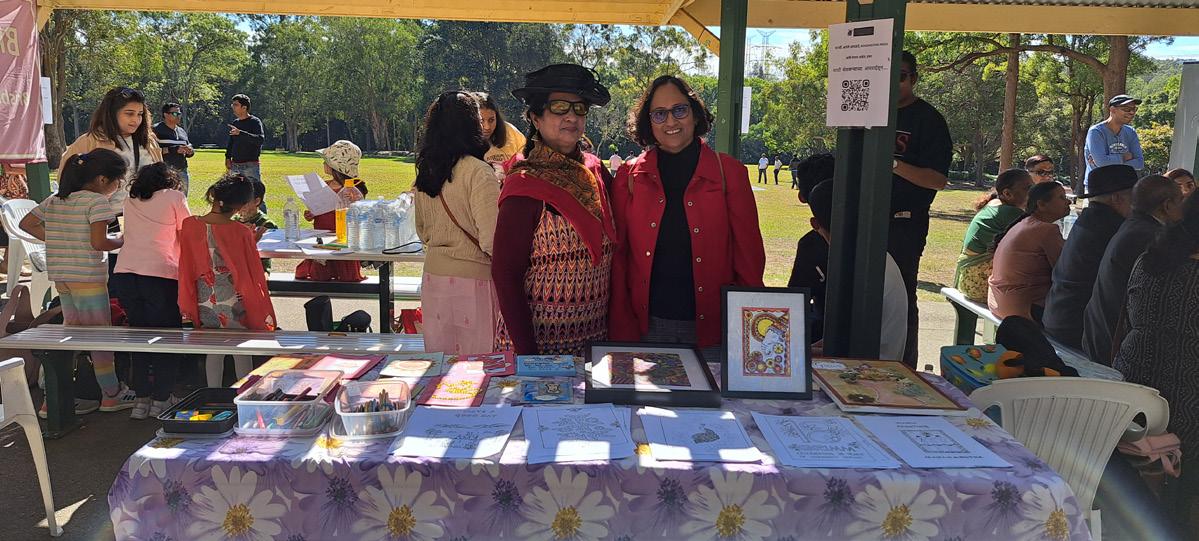
2 minute read
Make a difference … Have your voice heard on women’s health
Women from the Indian community are not well-represented in health research. So, how do we ensure they don’t get left out When the government is making important decisions that affect women's health?
policy is no longer appropriate.
Advertisement
Times are changing, and we now know that people from different ethnic backgrounds have different risk levels for some diseases. For example, women of Indian heritage have higher risks of diabetes and heart disease. We are also likely to experience different types of menopausal symptoms to women from European backgrounds.
Professor Gita Mishra is the director of the Australian Longitudinal Study on Women’s Health at The University of Queensland. She believes improving the representation of Indian Australian women is crucial so that the government can tailor health services to our community’s needs.
57,000 women have completed surveys on their health and wellbeing since the Study began in 1996, making it the largest, longest-running research project of its type in Australia.
“The information our participants share through the health surveys has been used to develop federal and state government policies across a wide range of issues impacting women’s health and the services they use,” said Professor Mishra.
than 1 in 1000 participants in the Australian Longitudinal Study on Women’s Health have Indian heritage.
To make sure that the Australian Longitudinal Study on Women’s Health remains representative of all Australians, the study is recruiting new participants from the Indian community.
mothers, daughters, aunties, and grandmothers of not only the Indian community but all women in the community.
“It is an opportunity to be part of something so much bigger than yourself,” says Ms Naresh.
Historically, women have not been properly represented in health research. As Indian women, we have even less visibility. Australia’s health policies and disease management guidelines are largely based on data from people with a European heritage, but this one-size-fitsall approach to developing health
“Good policy is based on research,” said Professor Mishra. Research provides the information that is needed to make the best decision, which is why it must include the voices of all people. The Australian Government funds research programs to gather information on the healthcare needs of the population. The Australian Longitudinal Study on Women’s Health is one such program. Over
The study is longitudinal, meaning that it regularly surveys these same women every few years. Over time, this builds a detailed picture of how women’s health and their health service needs change from puberty and young adulthood through to their child-bearing years, menopause, and into older age.
The women participating in this research were representative of the Australian population when the study started, but 25 years of immigration have changed Australia’s cultural makeup. India is now the top country of birth among permanent migrants to Australia. Roughly 3 out of every 100 people in Australia have Indian heritage. However, less
Reema Naresh is leading the engagement and recruitment campaign for the Australian Longitudinal Study on Women’s Health.
“This is an incredible opportunity for our community’s voices to be properly represented,” said Ms Naresh.
She feels the survey’s holistic approach to health will resonate with Indian Australian women.
“As a culture, we understand that wellbeing is about more than medicines and physical symptoms. So it’s exciting to be part of this huge project that recognises all the social, psychological, economic, and environmental factors that can influence women’s wellbeing.”
She is excited about the potential for the research project to improve healthcare for the
Visit us at our stall at the India Day Fair on August 19th to find out more about the Australian Longitudinal Study on Women’s Health. Members of the team look forward to meeting you.

The Australian Longitudinal Study on Women’s Health recruitment drive is open to women aged 28-24 (born 1989-1995) and 45-50 (born 1973-1978).
To participate in Australian Longitudinal Study on Women’s Health visit www.alswh.org.au/ join-womens-health-australia/ For more details, contact Reema Naresh via alswh@uq.edu.au
Note on URLS
If possible, for please use this shortened link. It contains our campaign tracking for Google Analytics https://bit. ly/44Ytvam we have also provided a QR code that can be used in the paper version if there is space.









